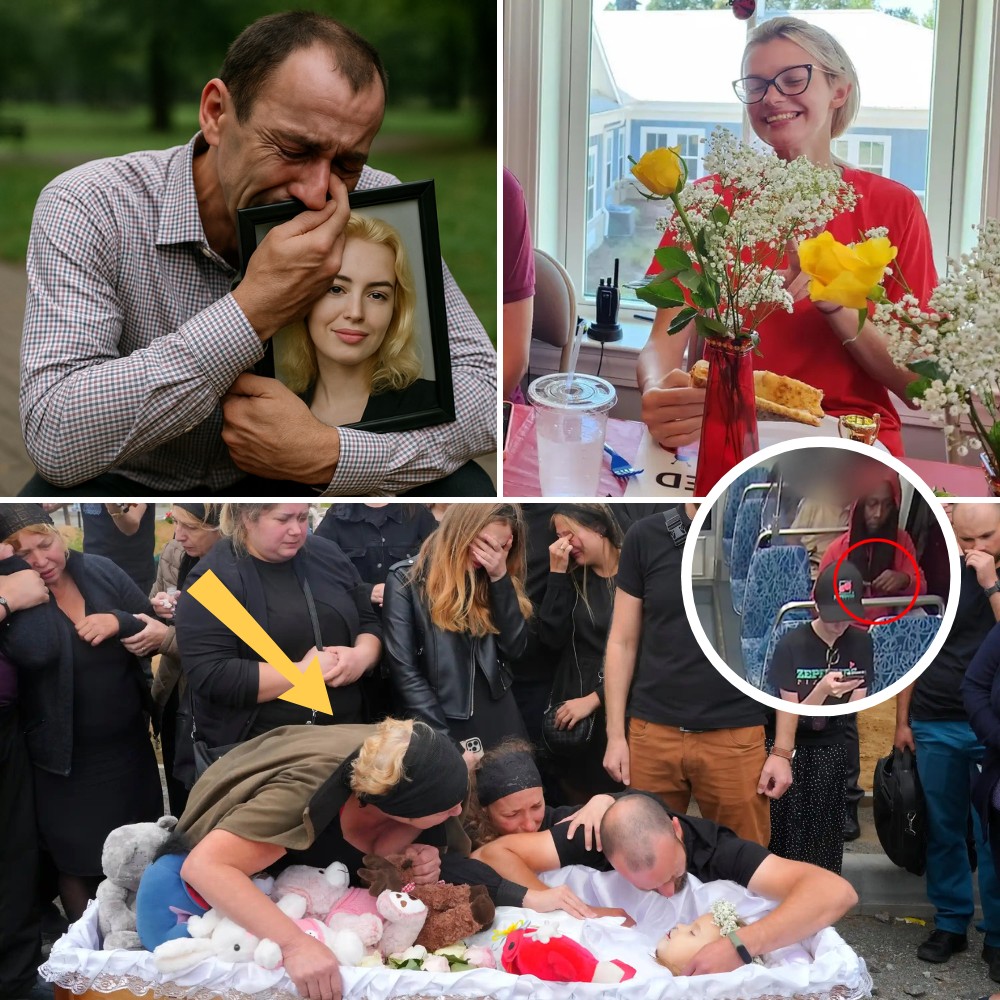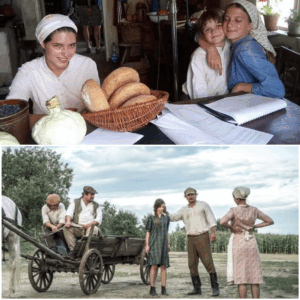
In the dim, flickering glow of a late-night light rail train rumbling through Charlotte, North Carolina, 23-year-old Iryna Zarutska—once a beacon of hope fleeing the horrors of Russia’s invasion of Ukraine—met her end in a moment of unimaginable brutality. It was August 22, 2025, just over three years since she, her mother, sister, and brother had sought refuge in the United States, chasing the elusive promise of safety and a fresh start. Iryna, with her artist’s soul and infectious spirit, had embraced this new world with open arms. Born in Kyiv on May 22, 2002, she held a degree in art and restoration from Synergy College, her hands more accustomed to sculpting clay and sketching dreams than to the cold steel of survival. In Huntersville, a suburb north of Charlotte, she juggled jobs at a local pizzeria, learned English with dogged determination, and even took driving lessons from her boyfriend—their first car a symbol of the stability she’d never known back home. Her family, cramped in a bomb shelter during the early days of the war, had watched her bloom: enrolling in college classes, designing vibrant clothing that mirrored her unyielding optimism, and whispering plans to become a veterinary assistant. “She came here to find peace and safety,” her family would later say, their words laced with a grief that echoes across oceans.
But peace, it turned out, was a fragile illusion on that fateful Lynx Blue Line train. Surveillance footage, now a haunting artifact of public discourse, captures the ordinary horror: Iryna boards at Scaleybark station, her khaki pants and dark shirt unremarkable amid the weary commuters. She settles into an empty row, eyes glued to her phone, oblivious to the man in the red hoodie seated behind her—34-year-old Decarlos Brown Jr., a shadow with a history as tangled as the tracks beneath them. Four agonizing minutes tick by. Then, without warning, without a word, Brown unfolds a pocketknife and plunges it into her back and neck three times. Chaos erupts as passengers scramble to aid her, their hands pressing futilely against the wounds as the train hurtles on. Iryna, the girl who had survived air raids and displacement, bleeds out on the floor, her dreams dissolving into the indifferent hum of the rails. Brown, calm as if he’d swatted a fly, discards his hoodie and exits at the next stop, only to be apprehended blocks away, bloodied but unrepentant.
The arrest was swift: first-degree murder charges in North Carolina state court, followed by a federal indictment on September 15 for an act causing death on a mass transit system—a charge that opens the door to the death penalty. Brown’s rap sheet is a litany of red flags: prior arrests for assault, theft, and trespassing, compounded by documented struggles with mental illness that had slipped through the cracks of an overburdened system. He remains in Mecklenburg County Detention Center without bond, his motives—if they can be called that—elusive. No hate crime allegation, no robbery, no lovers’ quarrel; just a random eruption of violence on a train meant for dreamers like Iryna. The video’s release ignited a firestorm, thrusting Charlotte’s public safety woes into the national spotlight. Republican leaders decried “soft-on-crime” policies under Democratic Mayor Vi Lyles, while Governor Josh Stein called the footage “appalling.” Ukrainian media mourned a daughter of their soil, her death a cruel irony in a land billed as a sanctuary. Fundraisers poured in from the Ukrainian diaspora, neighbors in Huntersville rallied with donated furniture to ease the family’s burden, and an online obituary painted her not as a victim, but as a “gifted and passionate artist” whose laughter could light up the darkest bunker.
Yet, amid the outrage and the indictments, a whisper of something extraordinary emerged—one that defies the raw thirst for vengeance that grips most tales of such savagery. In exclusive interviews with her grieving family, conducted in the shadowed quiet of their modest home, Iryna’s mother, Valeria, and siblings revealed a decision that has left the world reeling: forgiveness. Not the performative kind, doled out for headlines or plea deals, but a profound, deliberate absolution extended to Decarlos Brown, the man whose knife snuffed out their light. “We forgive him,” Valeria said softly, her voice cracking like fragile porcelain, eyes distant as if replaying the war’s endless nights. The reason? Heartbreakingly simple, rooted in the very faith that sustained them through bombs and borders: Christianity. “Jesus taught us to forgive, even our enemies,” she explained, clutching a worn Bible that had traveled with them from Kyiv. “Iryna believed in mercy. Holding hate would only chain us to more pain. We choose grace, for her sake—and for ours.”
This isn’t blind naivety; it’s a deliberate anchor in a sea of sorrow. Iryna’s father, trapped in Ukraine by martial laws barring men of fighting age, couldn’t even attend her funeral—a fresh wound atop the old. The family, hosted by compassionate neighbors who transformed their home into a haven for refugees, grapples daily with the void: empty sketches on the table, unfinished designs in her room, the pizzeria’s shift roster forever short one smiling face. They’ve pleaded with the public not to recirculate the graphic video, urging respect for the dignity Brown so brutally stole. “She was more than those final seconds,” her sister implored. Their forgiveness doesn’t halt justice—they support the charges, the trials, the accountability—but it severs the invisible tether of bitterness that could poison their healing. In a nation polarized by crime debates, where Iryna’s story fuels calls for harsher penalties and better mental health safeguards, this act stands as a quiet rebuke: vengeance may satisfy the crowd, but mercy mends the soul.
Iryna’s legacy, then, transcends the train car where it ended. She was the girl who sculpted beauty from brokenness, who fled tyranny only to encounter a different monster, yet whose family now embodies the radical love she lived. As Charlotte’s rails carry on, unbroken and unyielding, so too does their resolve—to honor her by rising above the blade. In forgiving for faith’s sake, they’ve not just freed Brown from their hatred; they’ve liberated themselves, turning a simple creed into a profound act of defiance against despair. One can’t help but wonder: in a world quick to condemn, what if more of us dared to forgive? Iryna’s story begs the question, her family’s choice a haunting echo that lingers long after the train’s last stop.

